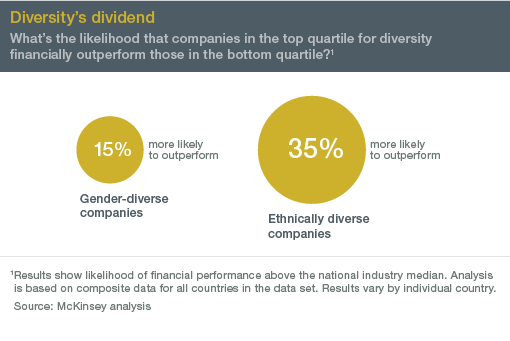What can HR do to protect diversity and inclusion initiatives?
Diversity and Inclusion initiatives struggle to succeed under any circumstances. But with recent dramatic shifts in the current social, economic and political cilimates in many areas, there is a strong possibility that any progress will be stalled. These swings signal a potential backlash to any corporate inclusion initiatives and even a reversal in our wider cultures. In a wider context, the growing mood seems to be dig in, keep people out, protect ourselves and make things “great” again. Whatever that means. It’s always unspecified of course. To specify would mean there is a vision, supported by goals and a plan. Across the board it’s clear there are no goals or plans. Anywhere. Just reactions.
The impact these new cultural developments will have on company diversity and inclusion initiatives needs to be factored in as the anti-diversity noise is getting louder by the day. News pours in from Denmark, Germany, U.K. France as well as other European countries. Of course not forgetting the rise in tension in the US.
When Inclusion is threatened
Inclusion isn’t about creating a superficially correct business culture, where token minorities and the odd woman are included in low impact initiatives to tick C-suite KPIs and release Boards of their obligations. It’s about creating high quality work teams which will excel at meeting their ascribed objectives and organisational goals. People are needed to lead those initiatives. There are any number of studies which show that diverse organisations have a higher return on shareholder value and hands down outperform non diverse companies.
Changing climate
Yet they are not working as they should, even in cultural climates reflecting a positive outlook and so we are failing to see a lasting impact. A rational approach supposedly to appeal to the data driven business mind is simply not gaining ground. Organisational cultural change can take many years. What is holding us back is the unconscious, irrational mind which is clearly overriding factually based D & I programmes. Today, that irrational mindset seems to be getting stronger.
Somehow hiring managers regardless of their political mind-set and persuasion, need to be committed to doing the best possible for their organisations in terms of attracting, sourcing, retaining and developing top talent. Already on the weak side, these flawed processes will struggle against this changing sociopolitical background.
The level of unconscious bias in the recruitment and promotion process is already high. The tendency to copy paste “mini-mes” so companies create cohorts of corporate clones which tend to be white and male, will become even stronger. The chances of creating a corporate culture based on diversity and inclusion set against that prevailing viewpoint will be weakened. The use of the hackneyed cop-out term as the right “cultural fit” will only grow. One hiring manager in a strongly Brexit region told me he had already been instructed to cut certain ethnic groups from the selection process of his organisation.
Challenges for HR
At a time when employee engagement is at an all-time low and insecurity and uncertainty are clouds over- shadowing a majority, HR practitioners face challenges dealing with these key issues. How do companies expect to find a way forward through this morass if they are located in geographies where the beast of xenophobia has been unleashed in a way that many did not anticipate. I’m not sure how many hiring managers will prioritize inclusion initiatives in these areas.
What can HR they do to implement diverse hiring policies if political wranglings over visas and work permits are going to make international hires increasingly difficult? How will they deal with outright discrimination?
Read: Post Brexit uncertainty starts talent drain
The inclusion challenge today for HR is to have the skills and credibility as well as the tenacity and resilience to cut through the crap and call things for what they are. They may need to stand up to poor leaders.
How many are willing and able to do that?
Check out unconscious bias training here






